#abdul wadud
Explore tagged Tumblr posts
Text
Music is an Essential Verb: Derek Taylor 2023
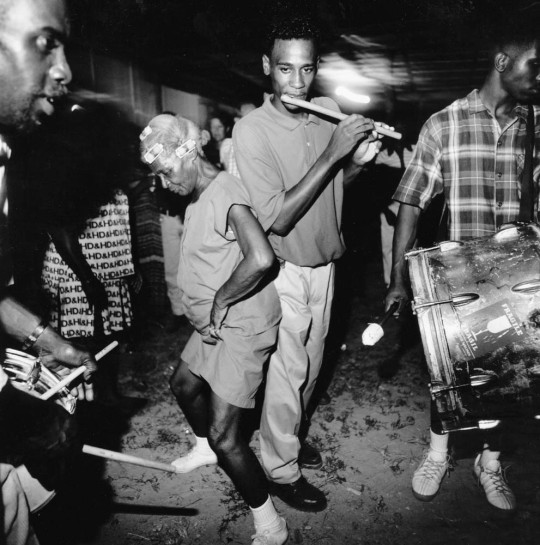
Music remains, along with family, friends, and a select few venial vices, my primary daily defense against the mental erosions of spiritual malaise and existential dread. Being a humanist also means being a realist, and little looks to be different on that score in the year ahead as we continue to careen toward a bleak and self-defeating dénouement. The veil of uncertainty around what ultimately feels like inevitability redoubles the need to remain thankful for and supportive of those who devote themselves to art. Summary capsules below describe some of the sounds that kept me going in 2023.
Peter Brötzmann, Wayne Shorter, Kidd Jordan, & Charles Gayle
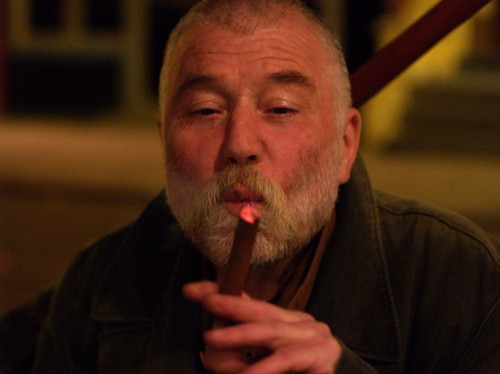
“The trauma of my generation was what our fathers had done to the rest of the world, and so we said, ‘never again,’ and that was the whole impetus through all my life, and it still is.” ~ Brötzmann (2018)
Musician attrition and demise are dispiriting aspects of every annum, but the departure of four disparate octogenarian reedists exacted an especially steep emotional and cultural toll this year. Shorter and Jordan passed away in March, each of them leaving a rich legacy as indefatigable improviser and altruistic educator that continue influence and inspire. Brötzmann exited in June after the return of a protracted respiratory illness. Few if any can match the magnitude of his mileage and six-decade itinerary as an irrepressible, obstinately adventurous world traveler. Gayle ascended in September, an ardent, uncompromising eremite to the end. All four men left behind discographies and concert/interview footage that will leave the faithful and curious listening and marveling in perpetuity, but their collective absence still aches.
Kirk Knuffke & Joe McPhee Quartet + 1 – Keep the Dream Up (Fundacja Sluchaj)
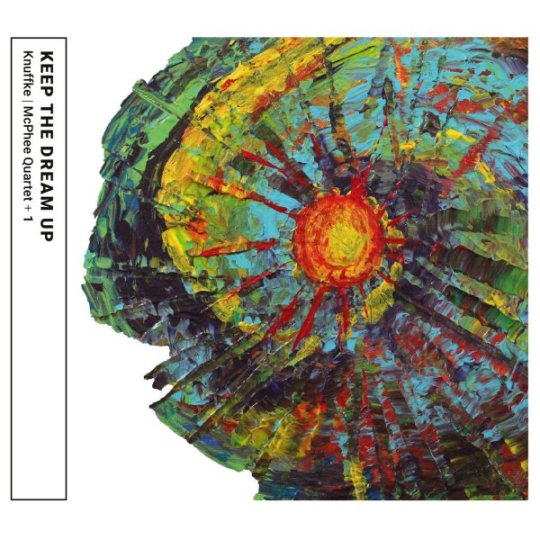
One of the manifold joys of following the output of Kirk Knuffke is anticipating who he’ll collaborate with next. The cornetist’s ears and imagination are as huge as his heart, a trait he has in common with the equally equanimous Joe McPhee. They’ve known each other for years but Keep the Dream Up is their first released collaboration and it’s an affirming alloy of their complementary creative temperaments. Longtime McPhee comrades Michael Bisio and Jay Rosen complete the quartet with bass clarinetist Christof Knoche comprising the additive on a Brooklyn studio session that captures collective creative lightning in a digital bottle. My album of the year for these reasons and more, although hopefully Joe will bring his brass to a follow-up conclave soon.
Don Byas – Classic Sessions 1944-1946 (Mosaic)
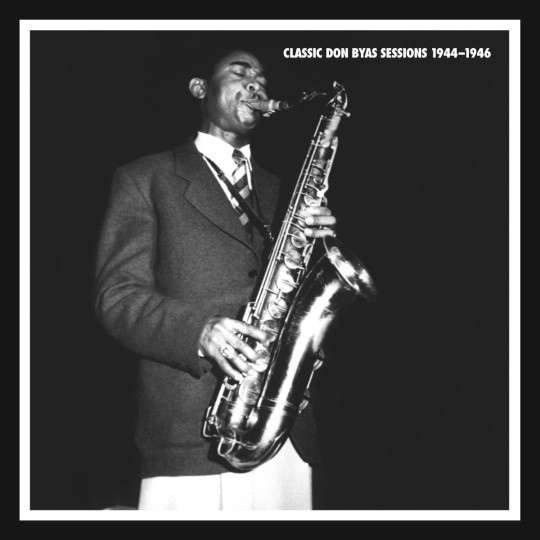
Saxophonist Don Byas recorded prolifically during the 1940s. His porous sound and popular style bridged the schools of swing and bop through prowess and panache aligned with the most esteemed of post-WII tone scientists. That sustained industriousness hasn’t reflected in reliable access to his works, primarily because they’re spread across a plethora of independent labels and competing copyrights. Leave it to Mosaic Records to rectify the longstanding reissue lacuna. This long gestating collection corrals and sequences the bulk of them across ten discs, scrubbing their sound, and adding an expansive cache of rarified verité concert recordings made in a Swedish jazz fan’s residence. Indulging in one’s Byas bias has never been easier or as edifying.
Fred Anderson – The Milwaukee Tapes Vol. 2 (Corbett vs Dempsey)
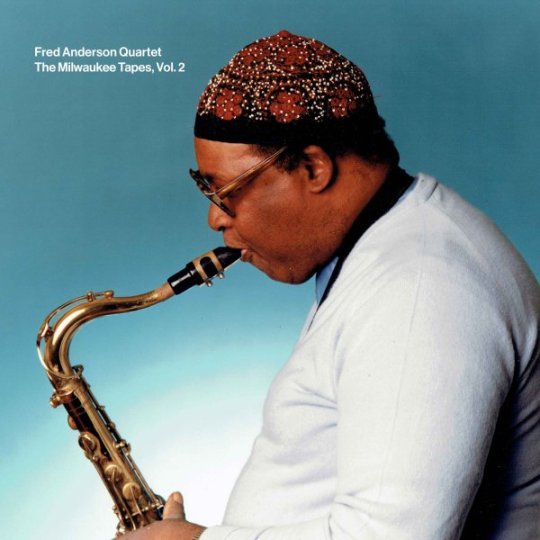
Patience and long-game aptitude are among music producer/archivist/advocate John Corbett’s virtues. This unexpected, but abundantly welcome sequel to an archival Anderson collection on Corbett’s long defunct Unheard Music Series took 23 years to secure commercial circulation and offers an additional hour-plus from the same gig in improved sound. Fellow AACMers Billy Brimfield and Hamid (nee Hank) Drake join bassist Larry Hayrod in bringing vibrant, detailed life to the Lone Prophet of the Prairie’s (as Anderson was affectionately known) serpentine, cerulean melodies. Corbett’s current label released a plenitude of music in 2023 (see also below) but the uncommon opportunity to hear more Anderson of any vintage makes this release worthy of independent mention.
Jason Adasiewicz
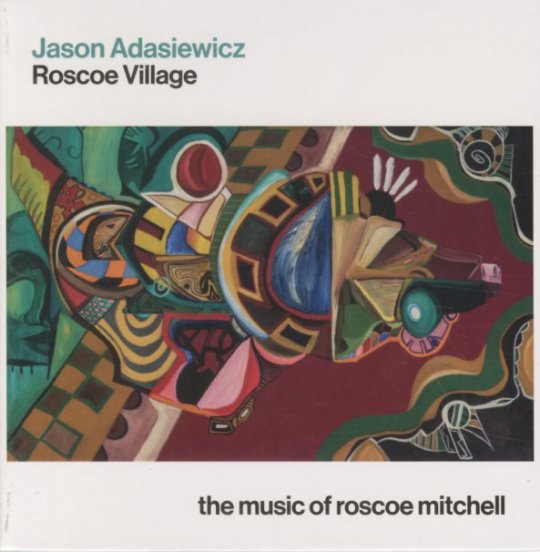
Corbett vs. Dempsey also had a welcome role in Jason Adasiewicz’s return to record with two different projects. On vinyl, Roy’s World documents a 2017 Chicago studio session by the vibraphonist’s quintet originally intended as the soundtrack to a film based on neo-noir novelist Barry Gifford’s short stories. Chicago stalwarts Josh Berman, Joshua Abrams, Hamid Drake, join saxophonist Jonathan Doyle in the ensemble for a program that sounds at once fresh and nostalgic while always vital. On CD, Roscoe’s Village dispenses with band for a solo selective foray through the songbook of Roscoe Mitchell including evocative renderings of “Congliptious” and “A Jackson in Your House” that retain the composer’s essence while striking out in bold new directions.
Natural Information Society
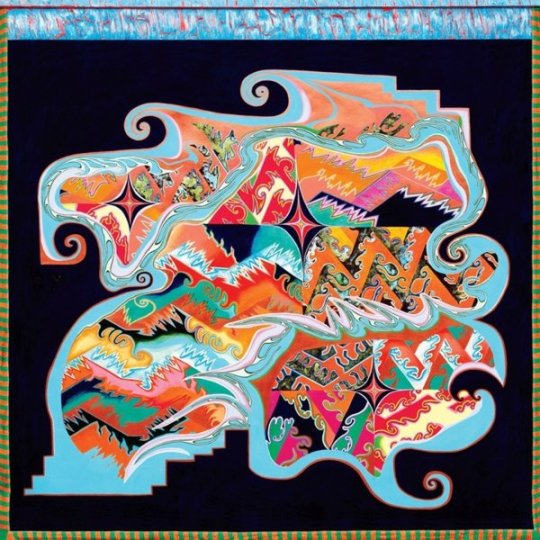
Grounded as it is in core voices of guembri, frame drum and harmonium, codification of Josh Abrams’ NIS as a jazz ensemble immediately feels reductively incomplete. All participating instruments can be active architects in the undulating, melody-laced drones that frequently form the basis of the band’s gradual, granulated improvisations. Performances are more akin to collective expeditions where a galvanizing gestalt effect is afoot; one where earned communal peaks preserve the individual power and agency of the interlocking parts. Since Time is Gravity augments this already catalytic template by incorporating a larger contingent of Chicago colleagues including tenorist Ari Brown to the equation.
Abdul Wadud
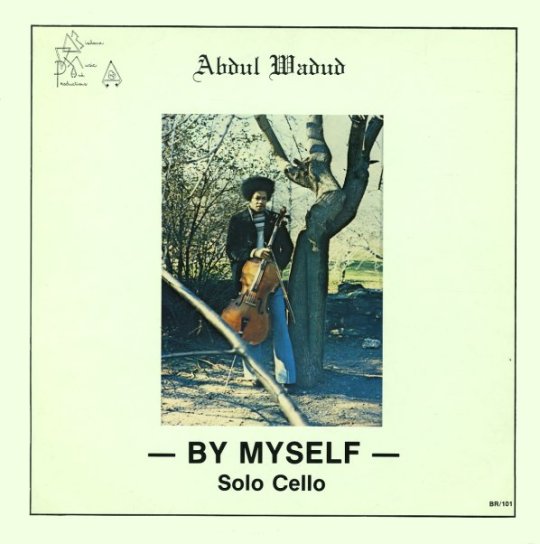
A jazz-based improviser on the cello who didn’t double on other stringed instruments, Wadud was also a consummate collaborator and sideman. Magnanimity in lending his substantial talents to the projects of others resulted in a paucity of albums under his own name. By Myself from 1977 on the Bisharra label is a revelatory anomaly on that self-effacing resume. Wadud approaches the instrument as a multifaceted sound factory, plucking, strumming, and bowing, often simultaneously, to create solo tone poems steeped in personal poignancy. Gotta Groove’s vinyl reissue is a beautiful facsimile of the original album object in faithfully reconstructed fidelity.
Marion Brown
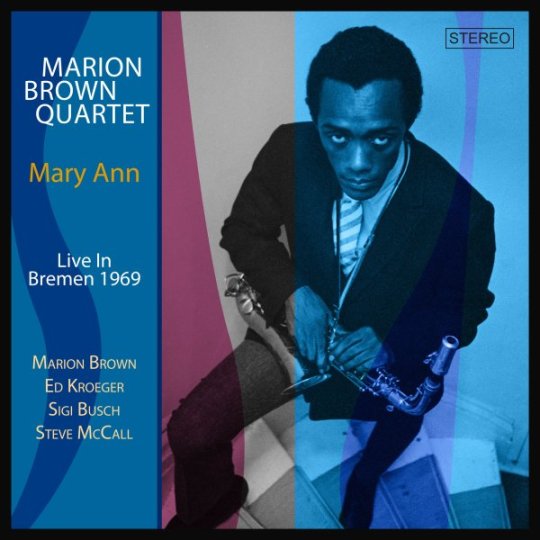
Georgia-born altoist Marion Brown had a lengthy, storied career but the body of recorded work that he left behind can present difficulties in terms of ingress to its totality. Scattered across labels, years, and circumstances, much of it is either out of print or commercially unreleased. That collective relative obscurity makes a trio of releases, two on the German Moosicus label, and a third Record Store Day viny reissue of Brown’s 1970 studio duets with Wadada Leo Smith under the shared sobriquet Creative Improvisation Ensemble even more valuable. Of the former two, Mary Ann presents concert material by Brown’s quartet from a 1969 Bremen club gig in soundboard fidelity. Gesprächsfetzen & In Sommerhausen combines two more German concert snapshots, quintet, and sextet, from 1968 & 1969 with Gunter Hampel originally released on the Calig imprint. Steve McCall is a boon on drums in all three contexts.
Art Pepper – Complete Maiden Voyage Recordings (Omnivore)
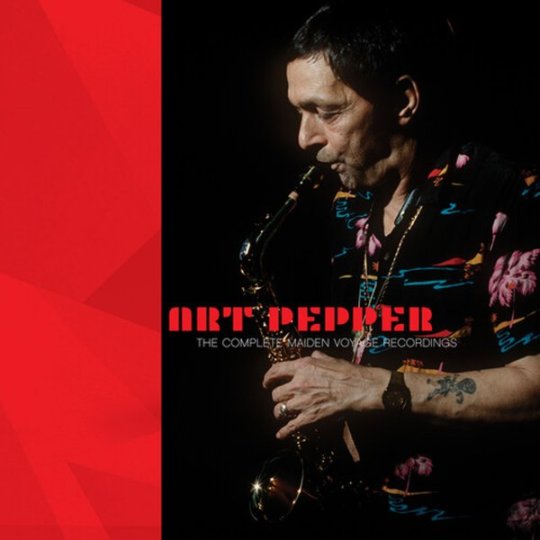
Art Pepper was an inveterate rake for most of his life, magnifying destructive interpersonal tendencies with drugs and frustratingly frequent acts of self-sabotage. That star-crossed propensity makes the fact that he left so much magnificent music even more miraculous. This lavish box is a fascinating compendium of the constantly competing artistic contradictions at his center, collecting a quartet gig across three nights and seven club sets in Pepper’s native Los Angeles, ten months prior to his premature passing at 56. Over half of the music is previously unreleased and the rhythm section, led by the impeccable and implacable pianistics of George Cables, gives Pepper a cumulative confidence boost that keeps him on the rails. None of it has ever sounded better.
Pan Afrikan People’s Arkestra
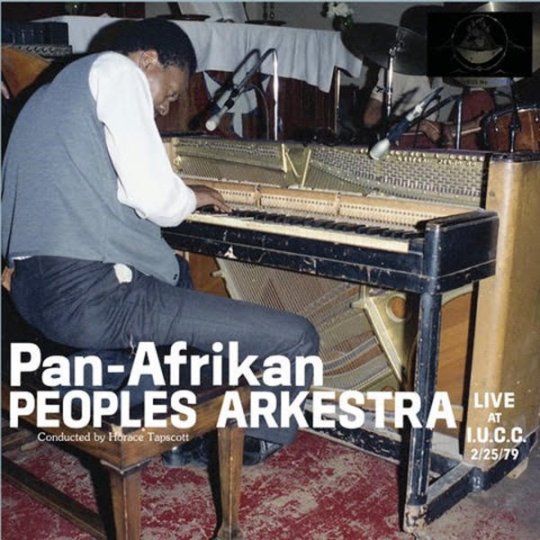
Los Angeles of the late-1970s was an unforgiving environment for the economic necessities of orchestral jazz. The Pan Afrikan People’s Arkestra, under the nominal leadership of pianist/composer/community organizer Horace Tapscott, was a tenaciously subversive force in the face of that ruinous rule. Adopting the Immanuel United Church of Christ as an informal base of operations, the large ensemble resourcefully engaged in an ambitious series of concerts in 1979. The Nimbus label, long a Tapscott exponent and repository, released the first three entries this year in an archival subscription series collecting the voluminous results. Titles are also available individually and present the pivotal band at a performative peak with star soloists Sabir Mateen, Billy Harris, Jesse Sharps, and Robert Miranda shining just as bright as their fearless foreman.
Alan Skidmore – A Supreme Love
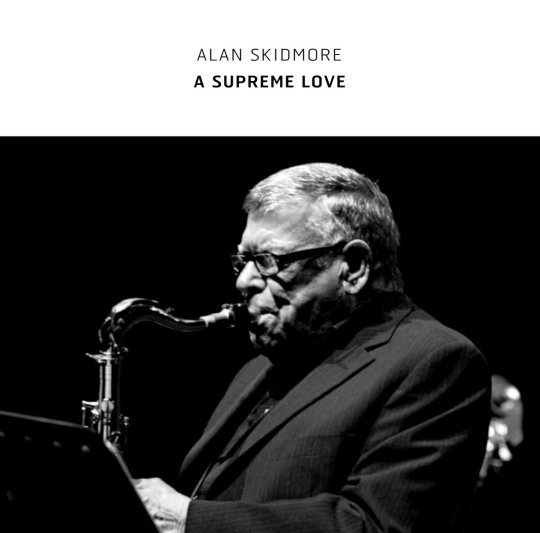
Unexpectedly issued on Mark Wastell’s Confront label, an imprint better known for its fealty to free improvisation, this six-disc archival tribute to Alan Skidmore’s 70+ year career in music launches with the saxophonist’s 1961 radio debut and lands some seven-hours later with his intimate 2019 rendering of John Coltrane’s “Psalm.” The aural expanse between is brimming with bright moments and luminary collaborators the likes of which include Tony Oxley, Kenny Wheeler, Wayne Shorter, Dave Holland, Mike Osborne, Elvin Jones, and another dozen name drops from the top tier of improvised music. It’s a wild, illuminating ride and a sterling example of a musical memorial done right.
The Jazz Doctors – Intensive Care/Prescriptions Filled: The Billy Bang Quartet Sessions 1983/1984 (Cadillac)
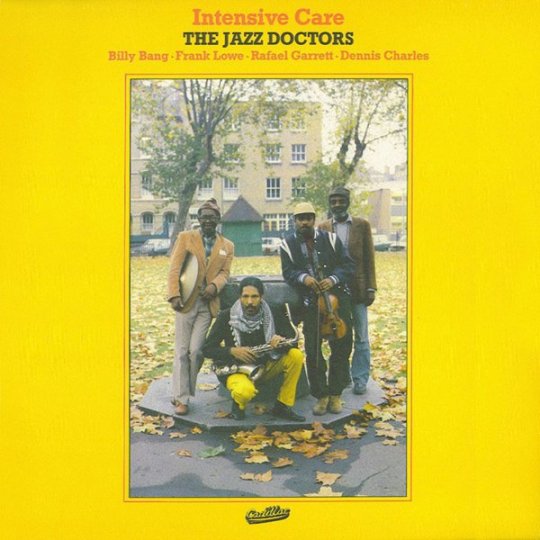
Billy Bang and Frank Lowe shared a bottomless fraternal bond forged through parallel traumas internalized in Vietnam and expressed by the subsequent embrace of the restorative power of improvised music. The pair of sessions (one reissued, one archival) collected on this disc epitomize their deep attachment arguably as well as any of their other numerous collaborations. Outside the cardinal duo, the Jazz Doctors never really had a stable lineup, but the quartets here embody two of their best. Both programs are loosely adherent to freebop conventions with violin and tenor saxophone combining over contrabass and drums for a potent front line. Bang and Lowe are long gone now, their shared absence making the availability of this music even more precious.
Attila Zoller & Jimmy Raney
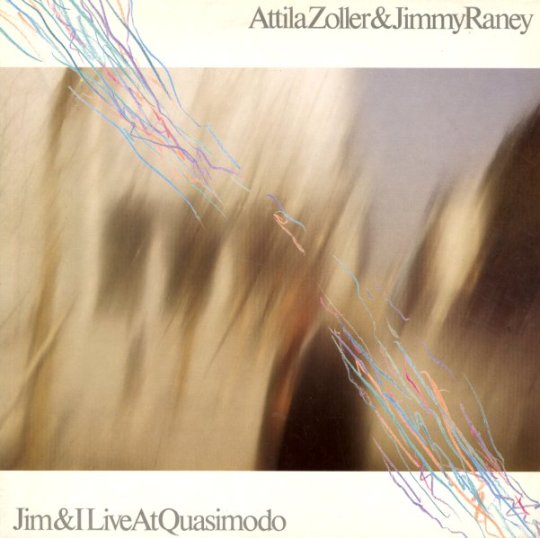
Hungarian guitarist Attila Zoller had selective affinity for other artists on the instrument, so much so that his mid-career period is seeded by fateful encounters with plectrist peers. Most prolific among these partnerships was his prudent pairing with Jimmy Raney. A popular proponent of bop-based jazz, Raney was in a similar exploratory headspace when the two joined forces on a trio of recordings for the German L + R label over a seven-year span. Concert dates from Frankfurt (’80) and Berlin (’86) find the duo spooling out lengthy dialogues that dabble in free improvisation while keeping codified melodies within reach. An earlier New York encounter (’79) explores their rapport in a studio. All three reissues on the Japanese Ultra-Vybe imprint are aces.
Steve Swell’s Fire Into Music
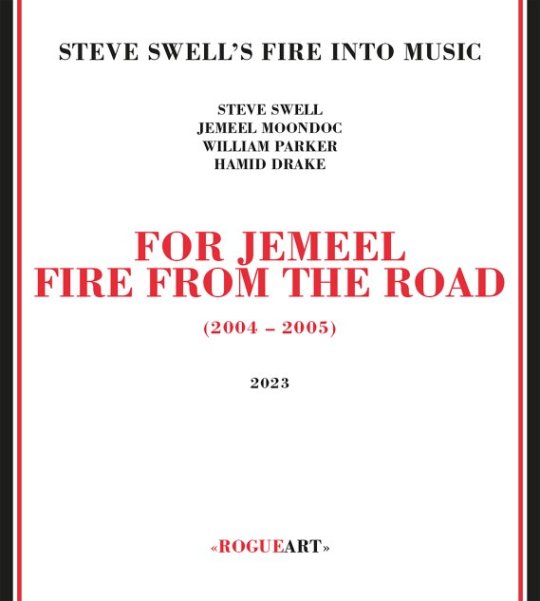
Simultaneously emblematic of NYC free jazz in the early aughts and fiercely dedicated to resisting pitfalls of provincialism by touring generously and rigorously, trombonist Steve Swell’s Fire into Music was one of the finest quartets of its kind. Posthumously dedicated to the late altoist Moondoc, this three CD set collects a trio of small venue concerts by the band from gigs in Texas and Ontario. As with the horns, William Parker and Hamid Drake are ideally suited to the extended, expository freebop safaris that formed the ensemble’s flexible repertoire. Swell’s the leader on paper but sagely embraces musical communalism without fail.
Intakt
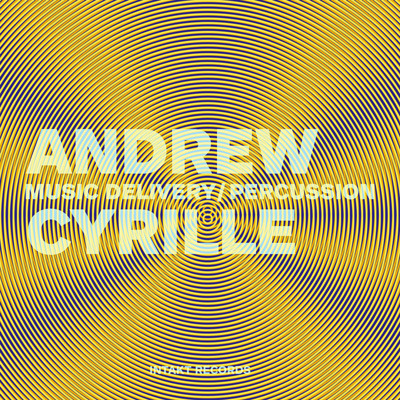
Running a physical media imprint in the 21st century is an inherently parlous enterprise, but this steadfast Swiss label continues to evidence how it’s done. This year’s standout catalog entries include Andrew Cyrille’s Music Delivery/Percussion, the octogenarian drummer’s third solo album and first in 45-years; bassist Jöelle Leandré’s solo Zurich Concert; pianist Aruán Ortiz’s Serranías Sketchbook for Piano Trio; Beyond Dragons by the trio of saxophonist Angelika Niescier, cellist Tomeka Reid, and drummer Savannah Harris, and Ohad Talmor’s Back to the Land, a quartet-plus-guests survey that takes its compositional focus an archival workshop date by Ornette Coleman and Lee Konitz.
Ezz-thetics
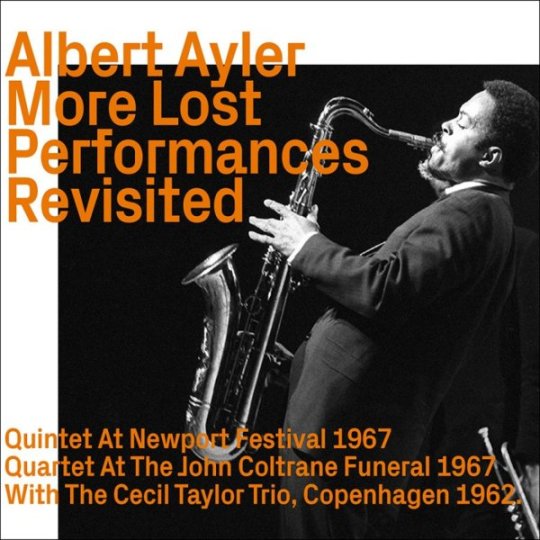
The appearance of the Swiss Ezz-thetics imprint four years ago raised both eyebrows and ire. Lacking access to master tapes, veteran free jazz and new music producer Werner Uehlinger sourced commercially released editions instead, employing ace audio engineer Peter Pfister succeeded by Michael Brandli to rejuvenate and refurbish the recordings, stateside copyright considerations be damned. Reaction was expeditious and polemical, but proof is in the hearing as most of the label’s dozens of releases sound better than their original incarnations. Catalog highlights this year include another round of Albert Ayler airshots including his pivotal meeting with the Cecil Tayor Trio in 1962 on More Lost Performances, Charles Mingus’ At Antibes 1960, and Ornette Coleman’s At the Golden Circle.
Fresh Sound
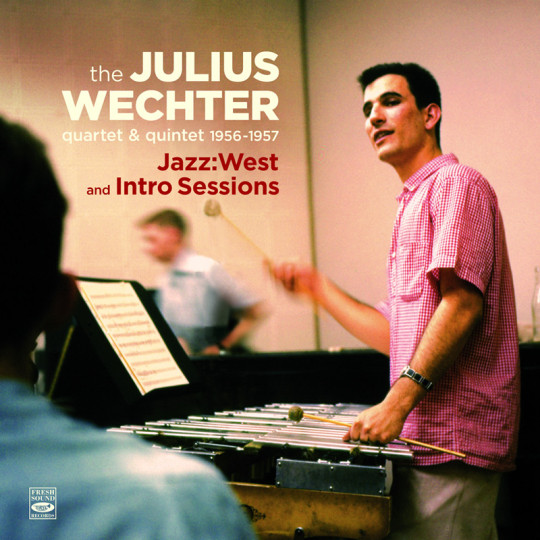
Jordi Pujol is akin to Uehlinger in that he refuses to let his vision and ambitions as a producer be abbreviated by external opinion. In Pujol’s case it’s yielded a bountiful inventory of antiquarian titles that rights holders have shown little to zero interest in restoring to begin with. Cases in point for this year include a definitive collection of obscurando saxophonist Boots Mussulli’s works; concert and studio collections by the Count Basie alumni tandem of Al Grey and Billy Mitchell; hens’ teeth rare leader sessions by Arthur Lyman vibraphonist Julius Wechter; and a two-fer of Julliard-trained Ellingtonian Cass Harrison piano trio albums. Exciting guilty pleasures all around.
Playing for the Man at the Door
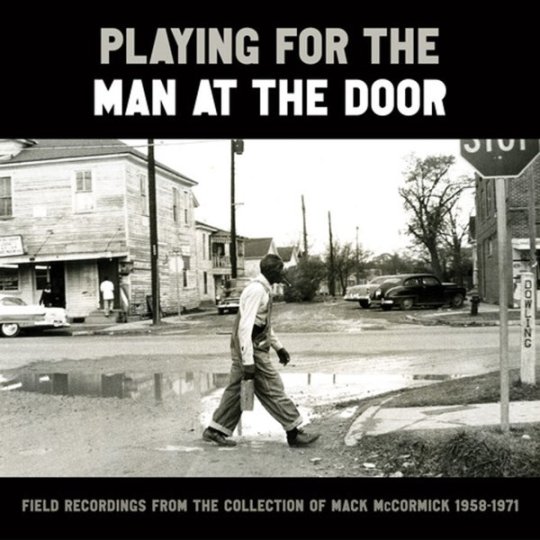
As complex as he was controversial, Robert “Mack” McCormick deserves consideration in the esteemed company of other maverick cultural archivists like Alan Lomax, George Mitchell, and Harry Smith. With a preservationist purview mostly comprising Texas and bordering states, McCormick spent much of his adult life obsessively documenting and disentangling the cultural capital of the region through recordings, photography, interviews, essays, and research. Smithsonian Folkways became repository for the massive reservoir after his passing and this box is the first in what will hopefully be multiple dispatches from the same. Unreleased field recordings of Mance Lipscomb and Lightnin’ Hopkins represent the big names, but works by the likes of Hop Wilson, Cedell Davis, Robert Shaw, and a handful of others are just as persuasive. Bongo Joe Coleman’s impassioned presidential pitch closing the set will have listeners pining for a time when third party Executive Branch candidacy didn’t seem so fraught.
Joni Mitchell Archives - Vol. 3, The Asylum Years 1972 to 1975
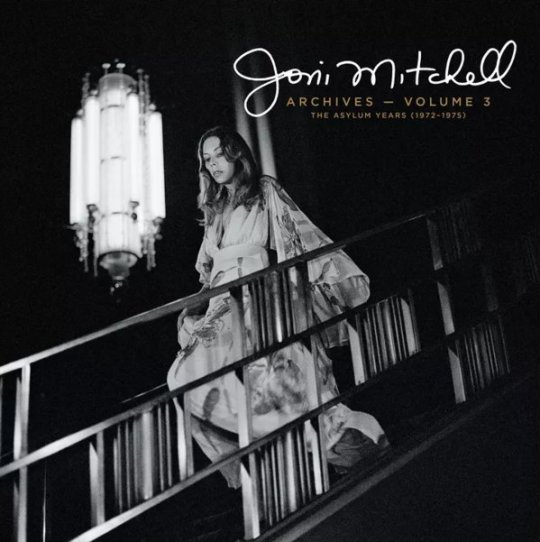
Mitchell’s continuing project corollary to her old friend Neil Young’s analogously exhaustive retrospective enterprise, this third entry in the series finds her 30-something-self further broadening the lens of her art beyond the solo concert music that dominated the first two boxes. There are stirring solitary shows here, too, but it’s the band offerings that prove most revealing, particularly in the company of reedist Tom Scott’s fusion group L.A. Express. James Taylor, Graham Nash, and David Crosby lend contributory hands, and there’s a brief but intriguing collaboration with Young alongside a trove of demos and workshop versions of songs from her first three albums for Asylum.
Martin Davidson
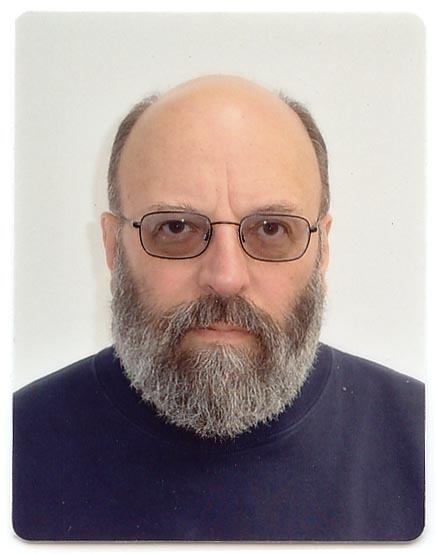
In closing, another memorial. Martin Davidson wasn’t a musician, but European free improvisation as an art and archive would be a fraction of what it is without his copious and enduring work. As steadfast proprietor of the Emanem label he put his resources into musicians whose efforts frequently fell outside the probability of consistent commercial remuneration. Under his aegis, influential improvisers like Steve Lacy, Derek Bailey, Evan Parker, and Paul Rutherford gained robust catalogs alongside other aspiring artists who never garnered even niche cachet. Davidson was a curmudgeon and an anachronism, trusting his ears implicitly, suffering the indignities of inquiries from strangers seeking audience with the hip hop icon who shared the phonetics of his imprint’s name, and advancing the pleasures of physical media well past their purported expiration date. He was also a talented writer, adding invaluable context to his releases through first-person testimony and critique. Martin will be missed.
And as is tradition in this 20th iteration of this year-end exercise, 25 more titles in stochastic order. Thanks to all for reading, and gratitude to Jennifer Kelly for providing the forum and formatting.
Rodrigo Amado’s The Bridge – Beyond the Margins (Trost)
James Brandon Lewis – For Mahalia with Love (Tao Forms)
Henry Threadgill – The Other One (Pi)
Guillermo Gregorio – Two Trios (ESP)
Rob Brown – Oceanic (RogueArt)
Rich Halley Quintet – Fire Within (Pine Eagle)
Milford Graves w/ Arthur Doyle & Hugh Glover – Children of the Forest (Black Editions)
Mike Osborne – Starting Fires: Live at the 100 Club 1970 (British Progressive Jazz)
Jim Hall – Uniquities Vol 1 + 2 (ArtistShare)
Madhuvanti Pal – The Holy Mother (Sublime Frequencies)
V/A – On the Honky Tonk Highway with Augie Meyers & the Texas Re-Cord Company (Bear Family)
Mal Waldron & Terumasa Hino – Reminiscent Suite (Victor/BBE)
Oum Kalsoum – L’Astre D’Orient 1926-1937 (Fremeaux & Associates)
Sonny Rollins w/ the Heikki Sarmanto Trio – Live at Finlandia Hall Helsinki 1972 (Svart)
V/A – Equatoriana: El Universo Paralelo de Polibio Mayorga (Analog Africa)
Evan Parker – NYC 1978 (Relative Pitch)
V/A – If There’s a Hell Below (Numero Group)
John Coltrane – Evenings at the Village Gate (Impulse)
Derek Bailey & Paul Motian – Duo in Concert (Frozen Reeds)
Peter Brötzmann/Fred Van Hove/Han Bennink/Albert Mangelsdorff – Outspan 1 & 2 (FMP/Cien Fuegos)
Hasaan Ibn Ali – Reaching for the Stars: Trios/Duos/Solos (Omnivore)
Mark Dresser – Tines of Change (Pyroclastic)
Steve Millhouse – The Unwinding (Steeplechase)
Myra Melford’s Fire and Water Quintet – Hear the Light Singing (RogueArt)
V/A – Destination Desert: 33 Oriental Rock & Roll Treasures (Bear Family)
#dusted magazine#derek taylor#yearend 2023#Peter Brötzmann#Wayne Shorter#jazz#kidd jordan#charles gayle#kirk knuffle#joe mcphee#don byas#fred anderson#Jason Adasiewicz#natural information society#Abdul Wadud#marion brown#art pepper#Pan Afrikan People’s Arkestra#Alan Skidmore#The jazz doctors#Attila Zoller & Jimmy Raney
16 notes
·
View notes
Text
"Happiness" by Abdul Wadud - From "By Myself: Solo Cello" (Originally released in 1977, remastered and reissued in 2023)
0 notes
Video
youtube
Julius Hemphill & Abdul Wadud Live in New York - Echo 1 (Morning)
1 note
·
View note
Text
“He has arranged for me to meet the Dibellan Sybil tonight,” confesses Brother Malcius as he rests between sparring bouts with his master, Abbess do’Matthri.
do’Matthri’s face betrays no expression. She simply scratches her furry chin in thought, letting her eyes wander. “Abdul Wadud is a man of mysterious means, and ends.” She finally fixes her gaze back onto Malcius. “What did he tell you? Why does he think this is important?”
Malcius licks his dry lips and swallows before speaking. “He said that love is double-faceted. He said I’d understand what he meant when I met her.”
do’Matthri’s tongue plays around one of her fangs for a moment. “do’Matthri does not always agree with Wadud’s methods, but he is an honorable man. You can trust him.” She leans over to rest her paws on Malcius’ seated knees and look him closely in the eyes. “But remember your vows.”
“Of course, Abbess.”
“Now,” says do’Matthri, slapping Malcius lightly across the face as she rises again, “let’s continue. Your appointment is tonight, not today. Think nothing of it, and fight me.”
“Yes, Abbess.”
-
“She prefers to stay anonymous,” Abdul Wadud says. He sits across from Malcius in a closed carriage, dusk hanging heavy on the thin curtains obscuring the windows. “You likely won’t see her face, or hear her true name. But rest assured I have arranged for you to meet the Dibellan Sybil herself.”
“Yes, Master Abdul,” says Malcius, nodding and clutching his notebook full of interview questions. To meet the illustrious head of an order like the Dibellan priesthood, one must come prepared. But the space in his notebook allotted for questions is mostly blank - what do you ask a Sybil, one who has likely prophesied this meeting long in advance? He’s heard stories about her, filtered through a Maran perspective, of course. He’s eager to find out how many of them are true.
Outside he can hear the bustling city streets of Anvil slowly congregating in taverns and homes. The carriage stops outside an innocuous home, only the upper-story windows dimly lit from within. Wadud opens the door and invites Malcius to step outside. “The door should be unlocked,” he says. “She’ll be on the second floor, first door on the right.”
As Malcius begins to tumble out of the carriage, Wadud pats him on the back. “Good luck.”
-
The room is much like any other, but filled to the brim with candles. White, red, pink, and other warm colors, scented heavily, filling the air with overbearingly pleasant aromas Malcius can’t identify, almost suffocatingly so. She is seated in the corner with one leg crossed delicately over the other, her scarlet-gloved hands folded in her lap. She is covered head-to-toe in lily-white linen, and her face is obscured by a pale porcelain mask, representing the visage of Dibella. Her head is lowered slightly when Malcius steps inside, but she slowly raises it to look at him. How she can see him, he’s not sure - the mask seems to lack eyeholes.
“Greetings, Brother Malcius,” she whispers just loudly enough to be heard. “Please, have a seat.” She gestures towards a plush chair opposite hers.
Malcius obeys, cautiously approaching and taking a seat. He rests his journal on his lap, forgetting it for a moment in some kind of awe. The Sybil has some kind of aura about her that compels it.
“Well?” she says, a bit louder this time. “Wadud said you might have some questions for me.”
“Ah,” breathes Malcius, snapping out of it and grabbing his journal to flip through. But suddenly all his questions feel a bit childish. Feebly he picks one at random: “What’s it like being the Dibellan Sybil?”
The Sybil laughs politely. “It’s all I’ve ever known. Did you know we’re usually selected at a very early age? I was nine when the priests came to take me away.” With a soft sadness Malcius doesn’t expect, she adds, “I can’t remember the face of my mother.”
“I can’t either,” blurts out Malcius.
“Ah…a Maralius, are you?”
Malcius nods. He averts his eyes from the face of Dibella, and they come to rest on the written question he just asked. Suddenly he realizes she hasn’t really answered it, and says again, “But what’s it like to be the Dibellan Sybil?”
“Persistent, aren’t you,” she observes. “Every day is filled with rituals of different kinds.”
Malcius is silent for a moment, before asking, “What’s wrong with rituals?”
“Nothing, per se,” replies the Sybil. “They’re just…a distraction.”
“‘The holy life is wholly ritual.’”
“Ah. You’re familiar with Saint Olava the Fair. Of course you are, of course you are.” The Sybil straightens up a little, and, changing the subject, says, “You must not listen to our mutual friend very much.”
“He speaks of rituals, too. Silence is a ritual. Love is a ritual.”
“You mustn’t think so rigidly, Malcius. Love can be a ritual, but it often isn’t.”
“What is love, then?” Malcius leans forward slightly, his eyes focused on Dibella’s.
The Sybil laughs. “What a question, for a Maran monk to ask.” Malcius shrinks back into his seat a little. “No, no, it’s not a bad question. Sit back and listen to me explain.”
“Love has two constituents,” she says, holding up two fingers. She folds down the fingers as she lists. “One, is the love you are most familiar with. The mother’s kind. Unconditional, eternal, but tame. Two, is the love I know best. The lover’s kind. Conditional, fleeting, but passionate.”
“Isn’t eternal love superior to temporary love?”
The Sybil sighs. “A mortal cannot measure loves, stack them up against each other. And you forget the power of passion.”
Malcius leans forward more, almost falling out of his seat. “What is that power?”
The Sybil laughs, more freely this time. “It’s not like magic, Brother Malcius. But it can be magical.”
“I’m…not sure I understand.”
“What do you know of the Dawn - the first Dawn, before time itself?”
Malcius frowns. “Precious little,” he admits.
“Before time,” the Sybil begins, wasting no time in her explanation, “cause and effect had little meaning. Everything meant little, in fact. But conviction yet existed, among the et’ada - the original spirits - that meaning could be found, or at least created.”
“Conviction, Malcius,” she says, and he can almost hear the smile behind the mask, “like what you seem to hold in spades.” He blushes and shrinks back into his seat as he listens.
“There were a few et’ada who were proficient in this newfound concept of ‘conviction.’ One you may have heard of, named Shezarr, or Lorkhan in the elven tongues.”
“Shezarr,” Malcius whispers back after he realizes she’s paused for effect. “The missing god. We call him Shor in Colovia.”
“Yes, like the Nords do,” the Sybil says, tilting her head slightly as she recollects. “Shor, as you say, wanted to create something new, beyond the eternal conflict of primordial spirits. He enlisted the help of many to help him in this endeavor, including his wife, Kynareth, or Kyne.
“But there was another who loved him. Well, several. But it is said that Dibella loved him from the start, when she first laid eyes upon him. She was jealous, intensely jealous, of Kynareth for having won his affection instead. So, with the help of a minor spirit of thievery, she took from the doting couple something that she lacked: conviction.”
“Dibella isn’t the goddess of conviction,” Malcius states plainly.
“Ah, but isn’t she? You see ‘beauty’ and ‘love,’ whereas I see ‘determinance’ and ‘conviction.’ What is beauty without a beholder, a beholding? The blending of beholder and the beheld into one substance, one single ‘yes’ or ‘no.’ And what is love without the conviction that it is true? Even this leads back to beauty, as what is truth if not beautiful?” The Sybil shakes her head. “I get ahead of myself. These matters concern you little, of course.”
But Malcius is gripping the edges of his seat, virtually thrumming with excitement. “No, no. Go on.”
“As I’ve said, I’ve said too much already,” she says, laughing. “The point is: Dibella became the goddess of beauty on that day before days. And the goddess of love, of passion.”
Malcius is silent for a moment, thinking. Then, carefully, he says, “I thought ‘passion’ belonged to the Daedra Lord…Sanguine.”
The Sybil tilts her head again, then nods slowly. “Of a kind,” she begins. “But consider him to be Prince of indulgence, of overindulgence, more than anything else.” She pauses. “I’m a saint, you know? Sybils are a kind of saint. And saints, by nature, see the world differently…it’s something I keep forgetting. But suffice it to say that these spheres you appoint your gods with are much more flexible than you assume. One god can represent many things, and a single concept may be spread out between several beings.”
Malcius nods slowly, and looks away for a moment, becoming entranced by a candle’s flame.
“Malcius,” the Sybil whispers, stealing back his attention. “Would you like to know your future?”
“I’m sorry?” sputters Malcius back, caught off guard by the question.
“A Sybil is saint and prophetess both,” the Sybil says. “I can give you but a glimpse. It is not something I afford many. Would you like to see?”
“I would be honored,” says Malcius.
“Then come closer. No, closer. Rise and approach me. Lean down for a moment.” As he obeys, she lifts up the bottom of her mask. “Kiss me,” she says, and Malcius can see her full, sensuous lips parting to form the words.
In his shock at the request, he’s barely phased by the fact that her skin is grey.
“I can’t,” Malcius says. “I took a vow -”
“A vow I’m familiar with. A kiss won’t break it, I promise.”
“I…I’ve never kissed anyone before.”
“It will come naturally. Approach it however you think best, Malcius.”
He purses his lips in consternation as she waits for him, her lips barely parted, breathing softly. She seems to grow tired of waiting, and grabs his hand, placing it behind her neck. He can feel her pulse through the cloth and her skin, a steady beat in stark contrast to the pounding he feels in his chest. He closes his eyes, leans in, and as their lips meet -
He’s seasick. He’s holding back vomit. He’s reciting prayers as he steps on dry land. He’s signing papers and telling his name, occupation, birthsign. He’s greeting a man he’s never met as though he were a brother. He’s meeting other lost siblings, all different, but with the same heart.
He’s chasing away evil with a staff, and he’s laughing with a true friend as he does. He’s begging forgiveness from the gods as he takes from the dead, the losers in the arena of this world. His heart, pounding, pounding, growing, growing.
He’s coughing. He’s not holding back vomit. His throat is swelling shut. He’s begging forgiveness from the gods, from Mara. But he’s praying that his friend next to him makes it somehow - even if he doesn’t.
Malcius pulls away in shock. The Sybil quickly lowers her mask. “What did you see?” she asks, excited. But she sees his paleness and changes her tune. “I’m sorry. It’s not always pleasant. I can’t see what you see.”
Malcius wipes his mouth with the cuff of his robes and says nothing for a long time. “I didn’t see anything,” he says finally. “But I felt many things. Things I don’t understand.”
“You must be a man of great destiny,” the Sybil says, “and not a bad kisser.”
#tes#tesblr#oc: malcius#oc: do'matthri#oc: abdul wadud#oc: the dibellan sybil#dibella#mara#lorkhan#shor#shezarr
68 notes
·
View notes
Text
btw wadud almost exclusively travels by carriage during the day bc. yknow. vampire
8 notes
·
View notes
Text

#bcswadud
#freelancerwadud
#softitinstitute
#abdullahtiacademy
1 note
·
View note
Text
List of notable Muslim allies of queer, trans or LGBTQI+ folks
Imam al-Nawawi – ally of Mukhannathun or trans femmes, female transsexuals and effeminate queers
Saint Khawaja Gharib Nawaz – ally and patron of Hijra and Khawaja Sara communities
Saint Baba Bulleh Shah – ally and patron of Muslim Khawaja Sira communities
Saint Lal Shabaz Qalander – patron of Khawaja Sira & trans Muslim communities
Abu Muhammad Ali Ibn Hazm – ally of queer Muslims
Ayatollah Ruhollah Khomeini - ally of transgender & intersex folks
Sheikh Muhammad Sayyid Tantawi - ally of trans & intersex folks
Amina Wadud - ally of LGBTQI+ Muslims, founder of Queer Islamic Studies and Theology (QIST)
Gulbanu Khaki/Gul Khaki - ally of LGBTQ+ muslims, mother of a gay imam
Khaled Hosseini - ally of transgender & proud muslim dad of a transgender child
Siddika Jessa - LGBTQI+ activist, mother of a gay muslim son
Ani Zonneveld
Pamela Taylor
Laura Silver
Omid Safi
Kecia Ali
Ghazala Anwar
Ensaf Haider
Saleemah Abdul-Ghafur
Farid Esack
Zaitun Mohamed Kasim/Toni Mohamed Kasim
Anne-Sophie Monsinay
Imam Kahina Bahloul
Imam Philip Tuley
Scott Siraj al-Haqq Kugle
Farouk Peru
Abdennur Prado
Ingrid Mattson
Hasan Minhaj
Reza Aslan
Alia Bano
Zaid Ibrahim
Azahn Munas
Ayman Fadel
Inayat Bunglawala
Shahla Khan Salter
Nakia Jackson
Jeewan Chanicka
Taj Hargey
Michael Muhammad Knight
Maajid Nawaz
Shehnilla Mohamed
Mustafa Akyol
Writer Sabina Khan
Activist Jerin Arifa
Urvah Khan - LGBTQI+ ally, co-founder of Muslim Pride Toronto
Imam Khaleel Mohammed
Imam Tareq Oubrou
Imam Dr Rashied Omar
Shaykha Fariha Fatima al-Jerrahi
Shaykha Amina Teslima al-Jerrahi
Scholar Hussein Abdullatif
Maysoun Douas
Fátima Taleb
Aydan Özoğuz
Omid Nouripour
Özcan Mutlu
Ekin Deligöz
Cem Özdemir
Artist Nadia Khan
Marina Mahathir
Siti Musdah Mulia
Karima Bennoune
Grand Mufti Sheikh Assadullah Mwale
Muneeb Qadir
Dr. Amir Hussein
Dr. Sana Yasir
Dr. Sali Berisha
Dr. Omer Adil
Hashim Thaçi
Albin Kurti
Supermodel Nadia Hussain
Irish-Bangladeshi singer Joy Elizabeth Akther Crookes
Salma Hayek
Fouad Yammine
Pakistani Director Asim Abbasi
Pakistani Actress Nadia Jamil
Indian Actor Saqib Saleem
Indian Actor Irrfan Khan
Indian Actor Aamir Khan
Indian Actress Zeenat Khan/Aman
Indian Actress Shabana Azmi
Indian Actress Saba Azad
Indian Actress Sara Ali Khan
Indian Actress Huma Qureshi
Indian Director Zoya Khan
Pakistani Actor Furqan Qureshi
Bangladeshi Actress Azmeri Haque Badhon
Actor Muneeb Butt
Indian Actress Zareen Khan
Indian Actor Imran khan
Pakistani Actress Mehar Bano
Filmmaker Faruk Kabir
Filmmaker Saim Sadiq
Filmmaker Sharmeen Obaid-Chinoy
Riz Ahmed
Zayn Malik
Sally El-Hosaini
Malala Yousefzai
Hafid Abbas
Hojatoleslam Kariminia
Singer Sherina Munaf
Writer Alifa Rifaat
Writer Ismat Chughtai
Activist Nida Mushtaq
Activist Aan Anshori
Abdul Muiz Ghazali
Kyai Hussein Muhammad
Marzuki Wahid
Gigi Hadid
President Abdurrahman Wahid (Gus Dur) - ally of waria or transgender females
Sinta Nuriyah - ally of trans & waria folks
Politician Keith Ellison
Mayor Sadiq Khan
Politician Ilhan Omar
Politician Rashida Tlaib
Politician Rushanara Ali
Politician Nabilah Islam
Politician Shahana Hanif
Politician Rama Yade
Politician Humza Yousaf
Politician Zarah Sultana
UK Sectratary General Zara Mohammed
Turkish politician Kemal Kılıçdaroğlu
Bengali Influencer Sobia Ameen
Shaykh Michael Mumisa
Muhammad Musharraf Hossain Bhuiyan
Mufti Abdur Rahman Azad - Hijra ally
Sheikh Hasina - Ally of hijra-intersex communities
Lawyer Iftikhar Chaudhry
Amani Al-Khatahtbeh
Professor Amel Grami
Professor Muhammad Aslam Khaki
Mohammad Hashim Kamali
Mehrdad Alipour
Lawyer Imaan Mazari/Iman Mazari
Shireen Mazari
Syed Murad Ali Shah
38 notes
·
View notes
Text
Sebab Kelapangan Dada
part 2 | Masjid Ar Royyan, Purworejo | 2 Mei 2024 oleh: Ust. Afifi Abdul Wadud
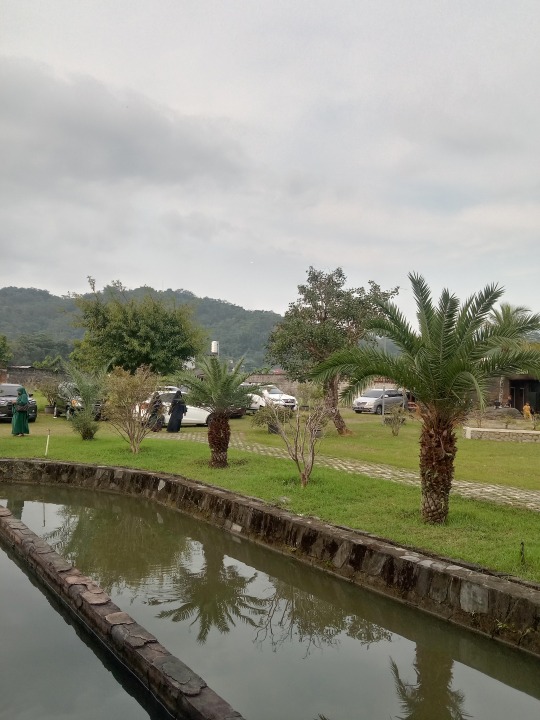
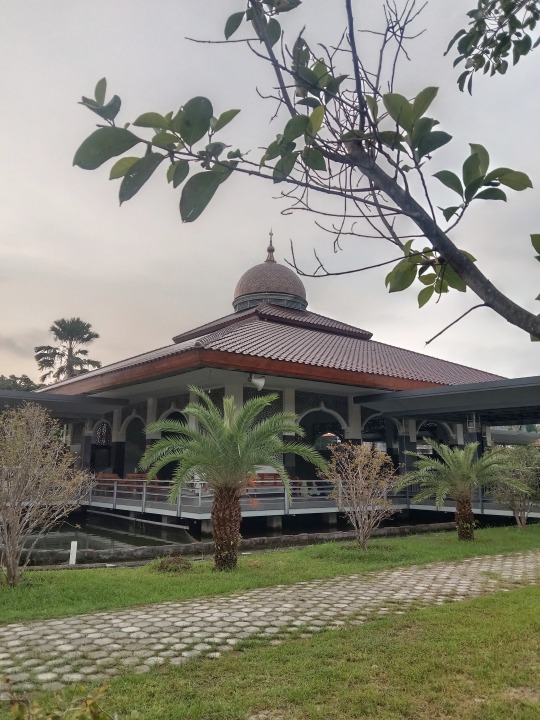

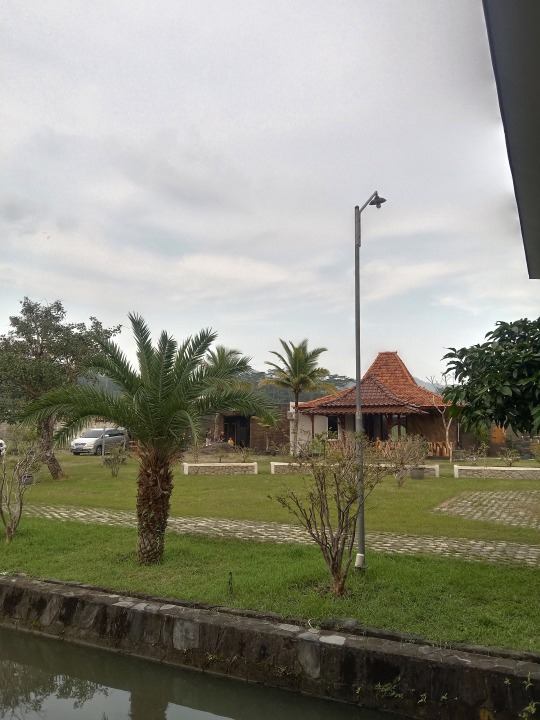
Dada yang lapang dan hati yang tenang adalah hal basic yang perlu kita miliki agar kita bisa menjalankan kehidupan ini. Lapang dada adalah nikmat dari Allah. Maka kita tidak akan mendapatkan nya apabila Allah tidak memberikan kepada kita. Kita perlu ikhtiar untuk mendapatkan nikmat tersebut. Apa yang perlu kita pahami mengenai kelapangan dada? Sebab kelapangan dada: 1. Taufiq dari Allah. Kebaikan itu semua di tangan Allah, tidak ada kebaikan yang kita raih kecuali Allah tolong kita untuk mendapatkannya. 2. Kelapangan dada hanya dapat kita dapatkan jika kita wujudkan syarat-syarat yang disebutkan oleh Allah. "Barangsiapa yang berpaling dari petunjuk-Ku, maka baginya adalah kehidupan yang sempit." Syarat Kelapangan Dada Menurut Al Imam Ibnu Qayyim, alamat orang yang mempunyai kebahagiaan hati/ kelapangan dada, yaitu dia yang: 1) Hatinya betul-betul fokus berorientasi pada akhirat Hatinya akan lapang. Orang yang demikian, segala-galanya dia ukur dengan kehidupan akhirat. Bagi seorang mukmin, jika orientasinya akhirat, segalanya jadi serba menguntungkan, baik dia dalam kondisi mendapatkan nikmat atau pun musibah. Orang yang ridho dengan Allah, mencintai Allah, mengagungkan Allah, maka dia akan berlapang dada ketika diberikan keputusan yang diberikan Allah kepada dia. Orang tersebut merasakan kelezatan iman. 2) Zuhud terhadap perkara dunia Semakin mengejar dan tenggelam orientasinya pada dunia, semakin tersiksa. Pencinta dunia tidak pernah lepas dari 3 hal: - galau dan resah terus - rasanya capek terus - sudahlah dia kejar dunia dan dapatnya sedikit, pada akhirnya dia menyesal karna sampai tua hanya berorientasi dunia saja. Bukan berarti tidak boleh memiliki dunia, tetapi artinya, dia bawa dunia sebagai kendaraan untuk menuju kampung akhirat. 3) Siap menghadapi kematian dan pasca kematian sehingga dunia dijadikan tempat sebagai persiapan untuk menuju kehidupan sesungguhnya pasca kematian. 4) Sempurnanya tauhid Orang yang semakin sempurna tauhidnya, hatinya semakin tenang dan lapang. 5) Cahaya iman 6) Ilmu yang bermanfaat Ilmu yang secara materinya shohih. Ilmu tersebut menggerakkan untuk semakin mendekatkan dia kepada Allah. 7) Senantiasa kembali kepada Allah Ingatlah, hanya dengan mengingat Allah, hati menjadi tenang. Kepada orang-orang yang menjauh dari Allah, Allah seru untuk kembali kepada Allah. Taqwa itu adalah jalan. Dan Taqwa itu dengan ilmu dan amal. 8) Baiknya penerimaan dia kepada Allah/ bagusnya dia dalam menyambut seruan-seruan Allah
9 notes
·
View notes
Text
A new album from Kahil El’Zabar’s Ethnic Heritage Ensemble today as well - "Open Me, A Higher Consciousness of Sound and Spirit"
This is the new offering from Kahil El’Zabar and his Ethnic Heritage Ensemble, in conjunction with the legendary group’s 50th anniversary, Open Me, A Higher Consciousness of Sound and Spirit. Open Me is a joyous honoring of portent new directions of the Ethnic Heritage Ensemble; it’s a visionary journey into deep roots and future routes, channeling traditions old and new. It mixes El’Zabar’s original compositions with timeless classics by Miles Davis, McCoy Tyner, and Eugene McDaniels. Thus, the Ethnic Heritage Ensemble continues affirming their indelible, half-century presence within the continuum of Great Black Music. Open Me, El’Zabar’s sixth collaboration with Spiritmuse in five years, marks another entry in a run of critically acclaimed recordings that stretch back to the first EHE recording in 1981. The storied multi-percussionist, composer, fashion designer, and former Chair of the Association of Creative Musicians (AACM) is in what might be the most productive form of his career, and now in his seventies, shows no signs of slowing down. Few creative music units can boast such longevity, and fewer still are touring as energetically and recording with the verve of the Ethnic Heritage Ensemble. The EHE was founded by El’Zabar in 1974 originally as a quintet, but was soon paired down to its classic form — a trio, featuring El’Zabar on multi-percussion and voice, plus two horns. It was an unusual format, even by the standards of the outward-bound musicians of the AACM: “Some people literally laughed at our unorthodox instrumentation and approach. We were considered even stranger than most AACM bands at the time. I knew in my heart though that that this band had legs, and that my concept was based on logic as it pertains to the history of Great Black Music, i.e. a strong rhythmic foundation, innovative harmonics and counterpoint, well-balanced interplay and cacophony amongst the players, strong individual soloist, highly developed and studied ensemble dynamics, an in-depth grasp of music history, originality, fearlessness, and deep spirituality.” With El’Zabar at the helm, the band’s line-up has always been open to changes, and over the years the EHE has welcomed dozens of revered musicians including Light Henry Huff, Kalaparusha Maurice Macintyre, Joseph Bowie, Hamiett Bluiett, and Craig Harris. The current line-up has been consolidated over two decades — trumpeter Corey Wilkes entered the circle twenty years ago, while baritone sax player Alex Harding joined seven years ago, after having played with El’Zabar since the early 2000s in groups such as Joseph Bowie’s Defunkt. For Open Me, El’Zabar has chosen to push the sound of the EHE in a new direction by adding string instruments — cello, played by Ishmael Ali, and violin/viola played by James Sanders. The addition of strings opens new textural resonances and timbral dimensions in the Ensemble’s sound, linking the work to the tradition of improvising violin and cello from Ray Nance to Billy Bang, Leroy Jenkins, and Abdul Wadud. Open Me contains a mixture of originals, including some El’Zabar evergreens such as “Barundi,” “Hang Tuff,” “Ornette,” and “Great Black Music” (often attributed to the Art Ensemble of Chicago but is, in fact, an El’Zabar composition). There are also numbers drawn from the modern tradition, which El’Zabar uniquely arranges, including a contemplative interpretation of Miles Davis’ “All Blues.” As a milestone anniversary celebration and a statement of future intent, Open Me effortlessly carries El’Zabar’s healing vision of Higher Consciousness of Sound and Spirit. All compositions by Kahil El’Zabar except tracks ‘All Blues’ by Miles Davis, ‘He’s Got the Whole World in His Hands’ spiritual folk by Unknown, ‘Passion Dance’ by McCoy Tyner and ‘Compared to What’ by Gene McDaniels All arrangements by Kahil El’Zabar Tapestry and Art Direction by Nep Sidhu
6 notes
·
View notes
Text
👋 Hi, Businessmen Or Company Owners!!!! LOOK at the below :::::::
🌱 Always businessmen or Company Owners want to generate more profit from his business site. What do you want ??? I'm sure that you also want this. Can you imagine, how to increase business profit ? ✅ As a sales and marketing consultant , I am telling you how to make double to triple business profit from your business website . ✅ When you have an online basis business , it could be Ecommerce, Service selling or another types business. 🎯 First of all, you must need massive potential customers for your website where you are showing your services. Without massive potential customers , a business can not GROW. 🩸 For increasing potential customers , I prefer you to optimize your business website for search engines. If you optimize your website then your product / service rank on SERPs. 💲 When you can rank your product or service in your local area on search engines then your local customers can buy your service easily. Finally your goal will be achieved. ⛔To get a 15 minute free consultation , now book your meeting. Warm Regards MD ABDUL WADUD
#ecommerce#marketing#seo services#organic traffic#digital marketing#free market#online marketing#commercial#branding#the amazing digital circus
3 notes
·
View notes
Audio
i'm getting ready to spend another friday night on wlur from 8pm until midnight. swing by or catch up with last week's show below!
no love for ned on wlur – may 12th, 2023 from 8-10pm
artist // track // album // label jale // ali // so wound // sub pop urusei yatsura // plastic ashtray // we are urusei yatsura // rocket girl hole // violet // live through this // dgc mhaol // asking for it // attachment styles // tulle mousey // the bench // my friends // winegum cheekface // popular two // it's sorted // (self-released) kate davis // monster mash // fish bowl // anti- the long blondes // once and never again // someone to drive you home // rough trade pale lips // get up and go // if you gotta go-go, go-go now- a tribute to the go-go's // sympathy for the record industry the courettes // night time (the boy of mine) // back in mono // damaged goods vera ellen // homewrecker // ideal home noise // flying nun calvin johnson // good and crazy // gallows wine // k hannah everingham // go on // between bodies // (self-released) hayden featuring feist // on a beach // are we good // arts and crafts sweeney // home song // stay for the sorrow // observable universe golden brown // busted crystal // weird choices cassette // inner islands center // the empty gesture // over the stations // bruit direct disques abdul wadud and leroy jenkins // straight ahead (excerpt) // straight ahead // red kahil el'zabar and ethnic heritage ensemble featuring dwight trible and david ornette cherry // don cherry // spirit gatherer- a tribute to don cherry // spiritmuse cvartetul de jazz paul weiner // colinda p // spirale // electrecord drew gardner featuring marco eneidi, roberto de haven and vytas nagisetty // the human abstract // the return cassette // astral spirits john carroll kirby // jubilee horns // septet // stones throw theo croker featuring ego ella may and d’leau // theo says // by the way ep // masterworks planet giza featuring saba // wyd // ready when you are // quiet note aj suede and televangel // rosicrucian rolls royce // parthian shots // fake four yaeji featuring k wata // ready or not // with a hammer // xl heather woods broderick // i want to go // labyrinth // western vinyl waterbaby // airforce blue // foam ep // sub pop evening pines // take a few steps back // it will take a long time // both worlds the lost days // half the time // in the store // speakeasy studios sf kid loco featuring katrina mitchell // love me sweet // a grand love story // yellow productions
6 notes
·
View notes
Text
📡 LIVE STREAMING
📅 Selasa, 18 Juli 2023 | Maghrib - Isya
👤 Ustadz Afifi Abdul Wadud, B.A.
حفظه الله تعالى
📚 TEMA: "Eps. 8 : Manhaj Para Sahabat #2"
🔗 Link YouTube:
https://youtube.com/live/-LPbQJ5acsA
✒️ Indonesia Bertauhid
Yuk bantu dakwah Islam bersama kami dengan cara berdonasi ke:
BSI 4556554559
a.n. Yayasan Indonesia Bertauhid
Daftar medsos: berbagi.link/indonesiabertauhid
Yuk dukung kami dengan like, comment dan share channel ini.
Barakallahu fiikum.
Follow kami di
Facebook dan instagram @indonesiabertauhidofficial
3 notes
·
View notes
Video
youtube
Arthur Blythe "As of Yet" (1977)
Arthur Blythe - alto saxophone Abdul Wadud - cello Ahmed Abdullah - trumpet Bob Stewart - tuba Steve Reid - drums Muhamad Abdullah - percussion
3 notes
·
View notes
Text
Anthony Davis (2) / James Newton (2) / Abdul Wadud - I've Known Rivers (LP, Album, Promo)
Vinyl(VG+) Picture Cover(VG) Insert(VG+) Obi(missing) / missing Obi 帯なし / / some minor foxing ジャケットに軽い��ミ / コンディション 盤 : Very Good Plus (VG+) コンディション ジャケット : Very Good (VG) コンディションの表記について [ M > M- > VG+ > VG > G+ > G > F > P ] レーベル : Gramavision – C28Y0092 フォーマット : Vinyl, LP, Album, Promo, Stereo 生産国 : Japan 発売年 : 1982 Recorded and mixed at Vanguard Studios, New York April 1982. Japan press,…
0 notes
Text
AINON’s sophomore album “Within” is a mesmerizing journey through the realms of jazz, contemporary, and classical music. Led by the visionary cellist-composer Aino Juutilainen, this Helsinki-based quartet weaves a tapestry of sounds that pays homage to the avant-garde legacies of Abdul Wadud and Jimmy Giuffre
0 notes
Text
ALSO. i think the events of dawnguard also happen in this timeline. and i'm going to go back to those plans i made forever ago and have abdul wadud (remember, he's malekaiah's adoptive father in this timeline) do his thing where he tries to kill harkon to free himself of his vampirism
1 note
·
View note